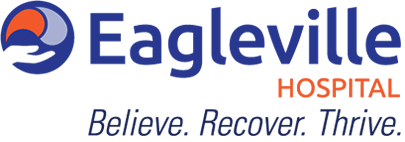How Adjunctive Therapies Complement Traditional Treatments at Eagleville
More and more, healthcare providers are embracing non-traditional therapies for a range of conditions. Many of them tap into the “mind-body connection” to offer relief and can take a variety of forms, such as meditation and yoga, massage therapy or breathing exercises.
Because these therapies are used in addition to more traditional medicine in a comprehensive treatment plan, they’re commonly referred to as complementary and alternative medicine or adjunctive therapy.
Although they may not be considered “traditional” medicine, they’re growing in popularity. As of 2014, 37 percent of treatment programs offered an art therapy program and 15 percent offered music therapy””but those numbers are on the rise.
Recognizing that these treatments are more than a fad, the Affordable Care Act included specific encouragement of increased insurance coverage for these treatments and called for more research into their effectiveness. That research is ongoing, but there’s a growing body of evidence for the role of adjunctive therapies in recovery.
Here, we’ll highlight the latest scientific thinking on three of the most popular adjunctive therapy programs at Eagleville Hospital: mindfulness meditation, art and music.
Mindfulness Meditation: Supporting Relapse PreventionRelapse is common following graduation from a substance abuse treatment program. Two traditional techniques used to help clients avoid relapse are cognitive-behavioral relapse prevention and 12-step programming.
In the cognitive-behavioral model, therapists work with clients to identify and change dysfunctional emotions, thoughts, and actions that lead to relapse. The 12-step model, one of the most well-known approaches to recovery, invites clients to find a self-help group of their peers who can help them maintain abstinence.
In recent years, a third option has emerged: mindfulness meditation. Through this practice, clients become aware of the triggers, destructive habits and automatic reactions that may otherwise go unnoticed. Then, they learn to respond in ways that serve, rather than hinder, their recovery.
Eagleville Hospital offers all three of these approaches to clients. A meditation group is available in the detoxification unit for patients with limited mobility. Others are invited to attend an hour-long yoga and mindfulness program, offered multiple days a week with the hospital’s Wellness Specialist, Irma Sciarra.
There’s good evidence to suggest that all three approaches can be beneficial in preventing relapse. A 2014 study found that of the three options, the cognitive-behavioral model and the mindfulness model “significantly reduce relapse risk to drug use and heavy drinking.” In fact, although all treatment options were effective, mindfulness-based relapse prevention had the greatest impact a year after the study.
Music in Therapy: Supporting Emotional RegulationMusic in therapy can take various forms in the substance abuse disorder context. Some of the most popular methods include songwriting, performance ensembles and lyric analysis or music appreciation groups.
Eagleville offers both a music performance ensemble and a music appreciation group””one of the most popular adjunctive programs offered.
Music therapy programs have been shown to improve mood among those with depression; increase relaxation and decrease impulsiveness in clients with addiction; and reduce stress, anxiety and anger. It’s even been shown to improve psychosocial behavior among couples receiving out-patient treatment for alcoholism.
In particular, drumming has been shown to provide a pleasurable experience, release emotional trauma, alleviate feelings of isolation and alienation, and instill a sense of inter-connectedness.
Art Therapy: Providing a Vehicle for CommunicationLike music therapy, art therapy programs take a variety of forms and offer numerous benefits to those in substance abuse treatment programs. With the guidance of a trained art therapist, patients can explore and express themselves through art materials and imagery, use art-making to manage stress and anxiety and simply spend some time in an enjoyable activity. Art therapy can be either a primary or a complementary therapy.
Eagleville offers an art therapy group that meets once a week and open art studio sessions in which clients can plan and create artwork and craft items. Clients can also engage in other creative therapeutic groups, such as visual journaling and mask making.
Research conducted over the last 40 years suggests that art therapy can help people in recovery accept their treatment more readily, better communicate their thoughts and feelings and motivate them to make positive changes.

